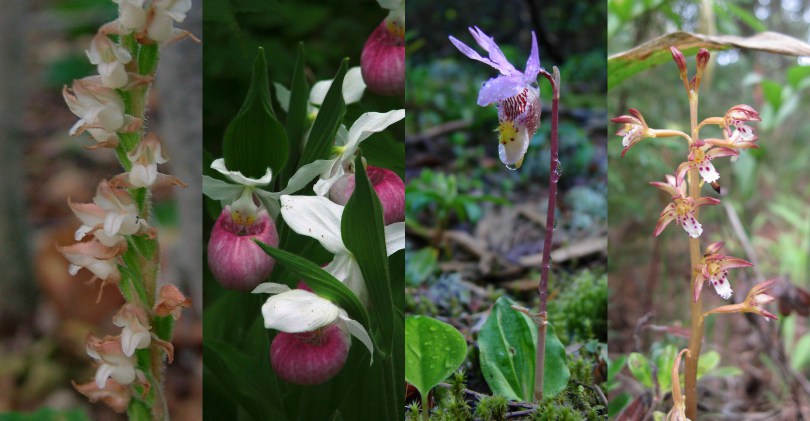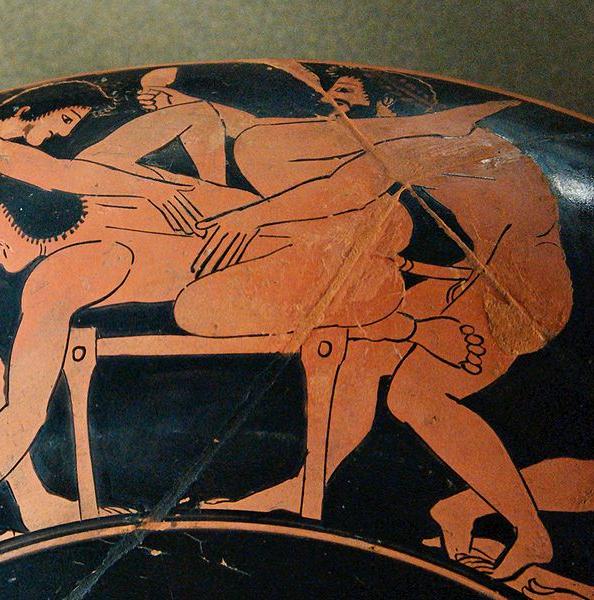Schools of brightly colored fish swirl around you as you set up your video monitoring equipment. As a marine ecologist, you’re hoping to get a reasonable census of the relative abundance of different species in this coral reef. With this data, you can begin to ask what might be driving these patterns. Why are parrotfish so common, and triggerfish so rare? Some possible explanations …
Of Salt and Sinkholes
According to the internet hivemind, sinkholes form when you divide by zero. According to Wikipedia, a sinkhole is a depression or hole in the ground caused by some form of collapse of the surface layer, usually as a part of karst landscapes. Most often, water erodes away the stuff underneath for a while before the hole opens up. The ones …
The Diversity of Orchids, or: “Are You Orchidding Me?”
Featured image: Michigan Orchids. Photos: Katie Grzesiak I really just want to talk about plants all the time; apparently having a job where I talk about plants all the time isn’t enough for me. And since you’re not the boss of me, this time I want to talk about orchids. To make a long story short, orchids (plants in the …
Challenge Those Assumptions!
Happily, we live in a time where challenging dogmatic ideas about the world is not punishable by being burnt at a stake. We know the earth is spherical, that the Earth revolves around the sun, and innumerable other facts about our tiny place in this immense universe. These breakthroughs have come when thinkers push back at conventional wisdom with careful reasoning to build new …
Soylent: A food alternative?
If you could get all of your vital nutrients and calories by drinking a single liquid concoction, would you do it? A new drink called Soylent purports to help you do just that. Sold as a mixture of powdered ingredients and oil (you just mix it with water), Soylent contains thirty five nutrients, vitamins, and minerals, and provides sufficient calories to be an all-in-one meal. Is this the food of …
Heuristics take flight!
Sitting in an airplane makes me feel more in touch with my own mortality. It’s hard not to feel vulnerable when I think about soaring through the air in a fragile metal tube at 600 miles per hour. Do you remember your last flight? The roaring engines, the seats shaking during take off and landing, and the unsettling feeling in your stomach as …
Seeking a Scientific Education
As someone who came into scientific research from an atypical educational background, I spend a lot of time thinking about the pedagogy of the natural sciences. Regrettably, undergraduate science classes – particularly at large universities – are often taught in a way that rewards rote memorization and does little to cultivate critical thinking skills. This was the topic of Kevin’s …
Porn: a societal predilection
From Priapus’ plump phallus to Shiva’s singular sexuality, humans have a rich history of fascination with sex. In Classical Antiquity, the Greeks and Romans crafted innumerable erotic vases and sculptures. As you can see from the vase in the photo above, they were not especially prudish! The Japanese, Peruvians, Chinese, and numerous other cultures made erotic artwork, and the Indians produced a helpful sex guide called …
Science is hard
Much of my science education has done remarkably little to make me into a critically thinking scientist. I passed my college classes, typically getting decent grades. I dutifully memorized the stages of photosynthesis, the enzymes used during the Krebs Cycle, and how to balance equations of chemical reactions. Do I remember any of it now? Only a little bit. Did it make me a …
When humans are treated worse than animals
Main photo from Wagingnonviolence.org I posted previously on how animals used for research are treated differently than those that are eaten. Since then, I have been reading about the criminal justice system in the United States (check out books here and here). I was struck by how much our prisons use solitary confinement. Humans are social creatures, and social research animals are guaranteed the right to interact …


